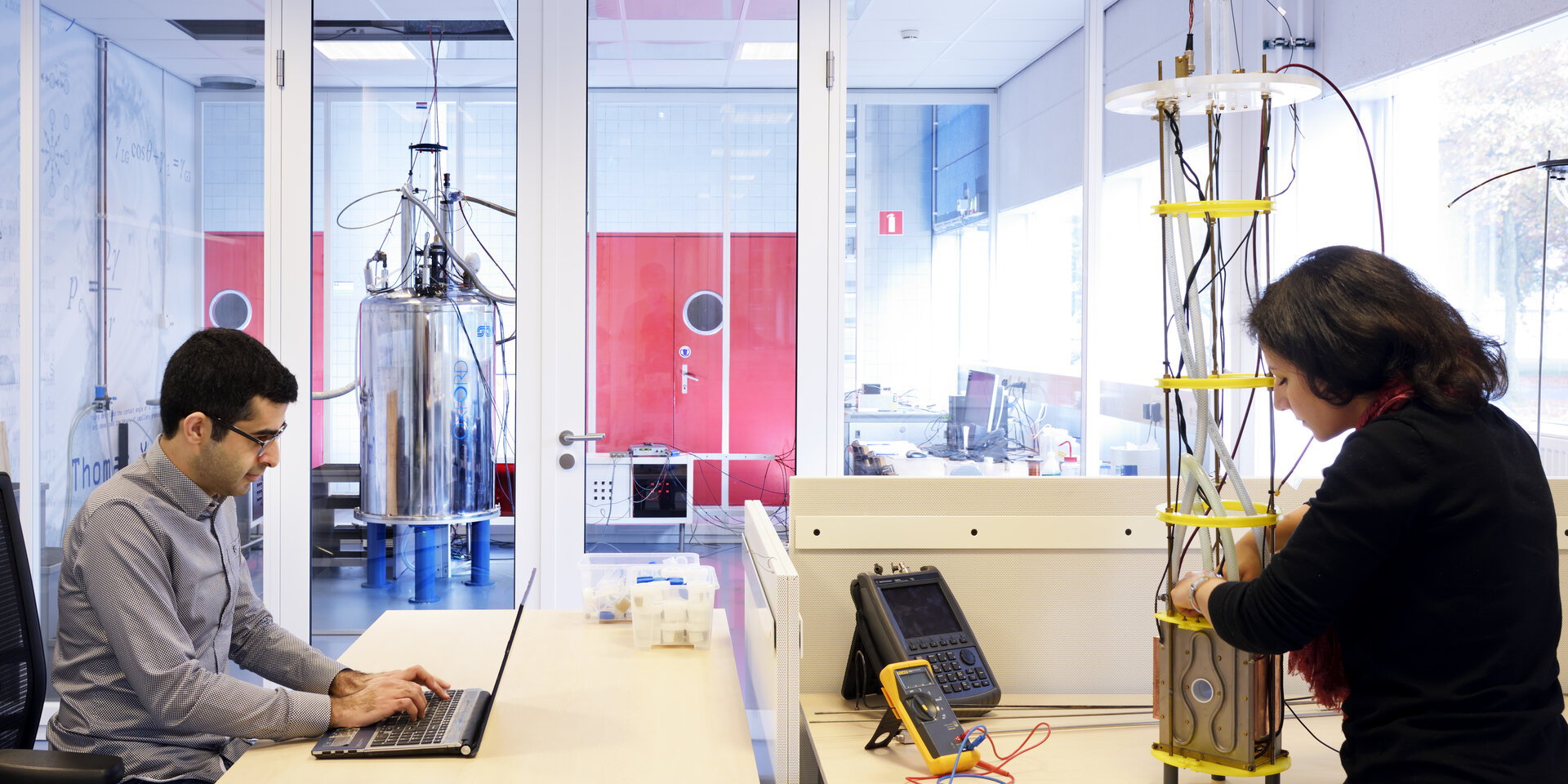Darcy Lab
The Darcy Lab offers unique MRI facilities specially equipped for researching the properties of technological porous materials.
Scanning porous materials under extreme conditions
What is the process which is responsible for decay of concrete structures decay? How can we store solar heat in a thermal battery, so that we use it to warm our homes in winter? What happens in a chemical reactor full of catalysts, and when is liquid steel hot enough to burst a ceramic trough? The answers to all these questions can be found with the globally unique MRI facilities available at the Darcy Lab.
Porous materials
What these questions all have in common is that their solutions lie in the properties of porous materials. In order to understand something of concrete decay, researchers must know such facts as how big are the pores in the material and which salts does the material contain. The same applies to the catalysts that accelerate a chemical reaction, and to a ceramic trough at Tata Steel. The MRI facilities at the Darcy Lab are specially equipped for examining the porosity and composition of materials.

Extreme conditions
Extremely high temperatures are just some of the conditions under which Darcy Lab's MRI scanners can work. This enables researchers to study fires resistance of materials. Not only water molecules but all kinds of salts in the material can be localized with the scans. As well as images, the scan output includes numerical information useful for field testing mathematical models of, say, the drying process of the materials.
Unique research possibilities
Most MRI scanners are unable to scan materials that contain magnetic contaminants. The equipment at the Darcy Lab, by contrast, is specially equipped for this purpose. The MRI scanners make scans in less than a millisecond, roughly thirty times as fast as a standard machine. This is necessary because magnetic contaminants in the materials (such as iron) greatly accelerate the speed at which the signal decays. At the other extreme, it is possible to conduct experiments lasting several hours, or even a couple of months. Owing to this special combination of research options, the facilities of the Darcy Lab are globally unique.
Cooperation
The research conducted at the Darcy Lab is usually inspired by real-life problems encountered in industry. Scientists at TU/e cooperate with other research institutions and companies such as AKZO, DSM, OCE, Rijkswaterstaat,TNO and Tata Steel. For more information, interested parties should contact Leo Pel.
Visit our other state-of-the-art labs and facilities
Contact us
-
Leo Pel